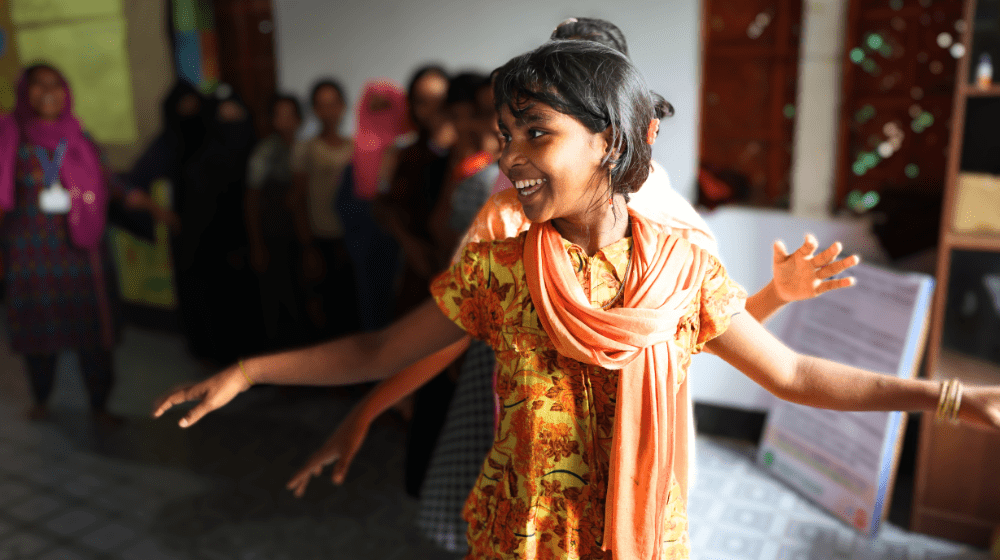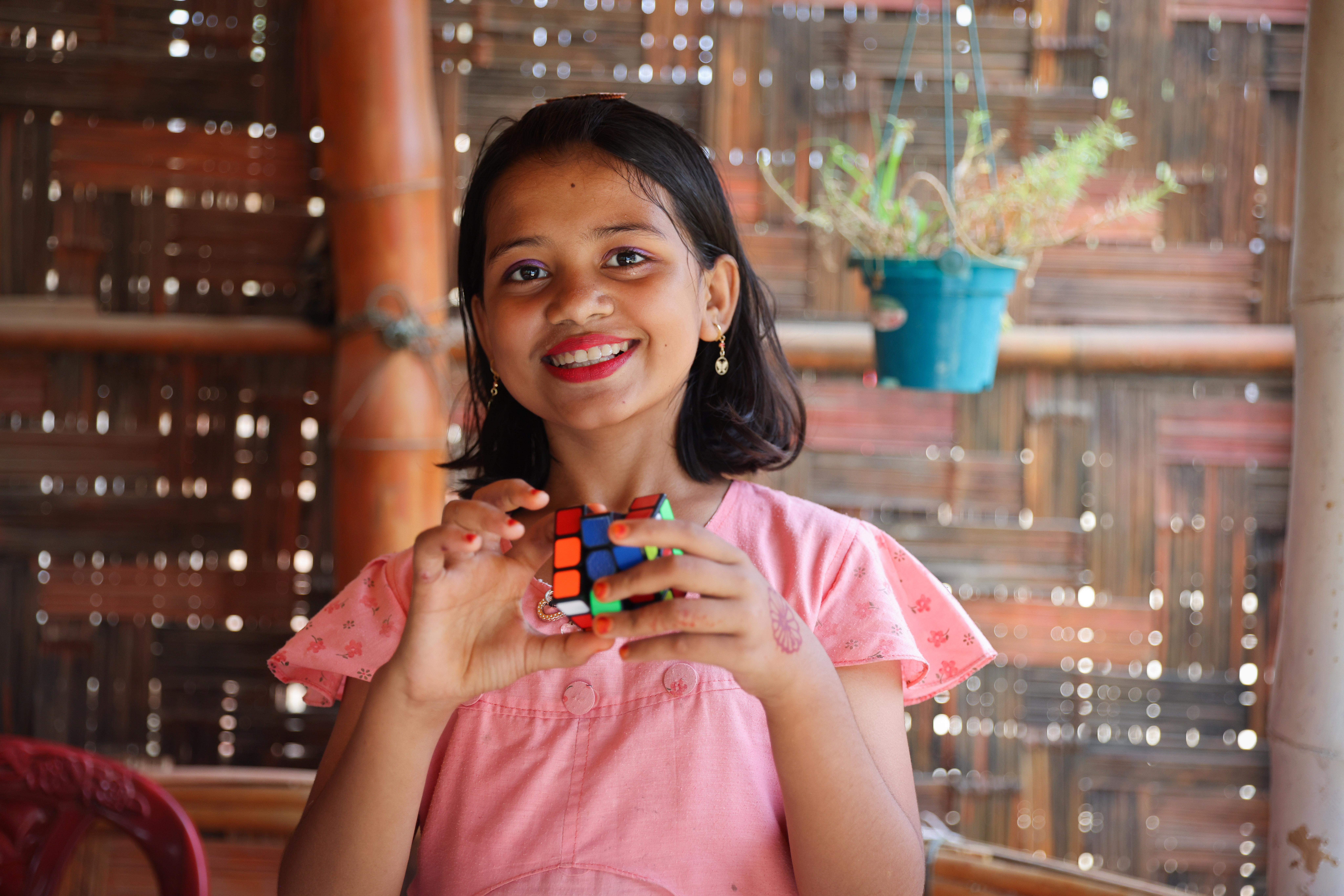During 2022 and 2023 UNFPA Cox Bazar embarked on a transformative journey, focusing on the well-being and development of adolescents and youth within Rohingya refugee camps. This journey centered around the establishment of eight purpose-built Adolescent and Youth Centers, aiming to catalyze positive change within the community. The Adolescent and Youth program has reached over 16,215 individuals since 2022 on over, encompassing adolescent boys, girls, their caregivers, and stakeholders.
This success story owes much to the generous support from the Korea International Cooperation Agency (KOICA). Their commitment has empowered UNFPA to implement sustainable solutions that extend beyond immediate relief, fostering enduring change in the lives of adolescents and youth in Cox's Bazar.
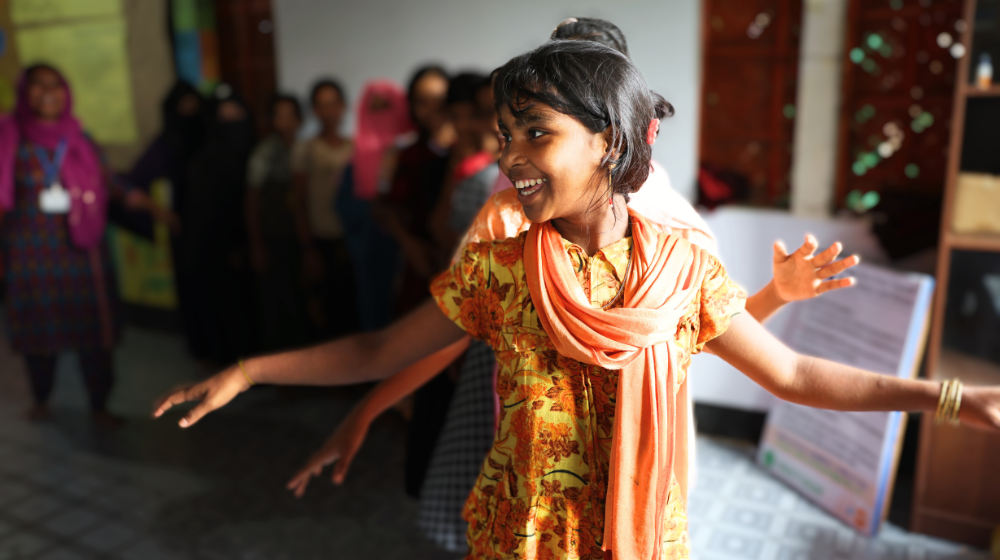
Adolescent girls from Rohingya Refugee Camp are celebrating the International Day of the Girl Child through various activities. Photo: UNFPA/ Nusrat Mahmud Ananna
Empowering Young People through Tailored Programs
These youth centers have a clear goal: unleashing the potential of Rohingya adolescents and youth living in the camps. They focus on knowledge transfer about Sexual and Reproductive Health and Rights (SRHR), Gender-Based Violence (GBV), and Menstrual Health Management, so young people can thrive and make informed decisions.
Girl Shine: Supporting Girls' Growth
One special program run in these centers is "Girl Shine." It's a well-thought-out training program designed to empower and protect adolescent girls. By teaching them, and their caregivers about sexual health and reproductive rights, this program helps young girls both from Rohingya and Host communities feel stronger and more confident.
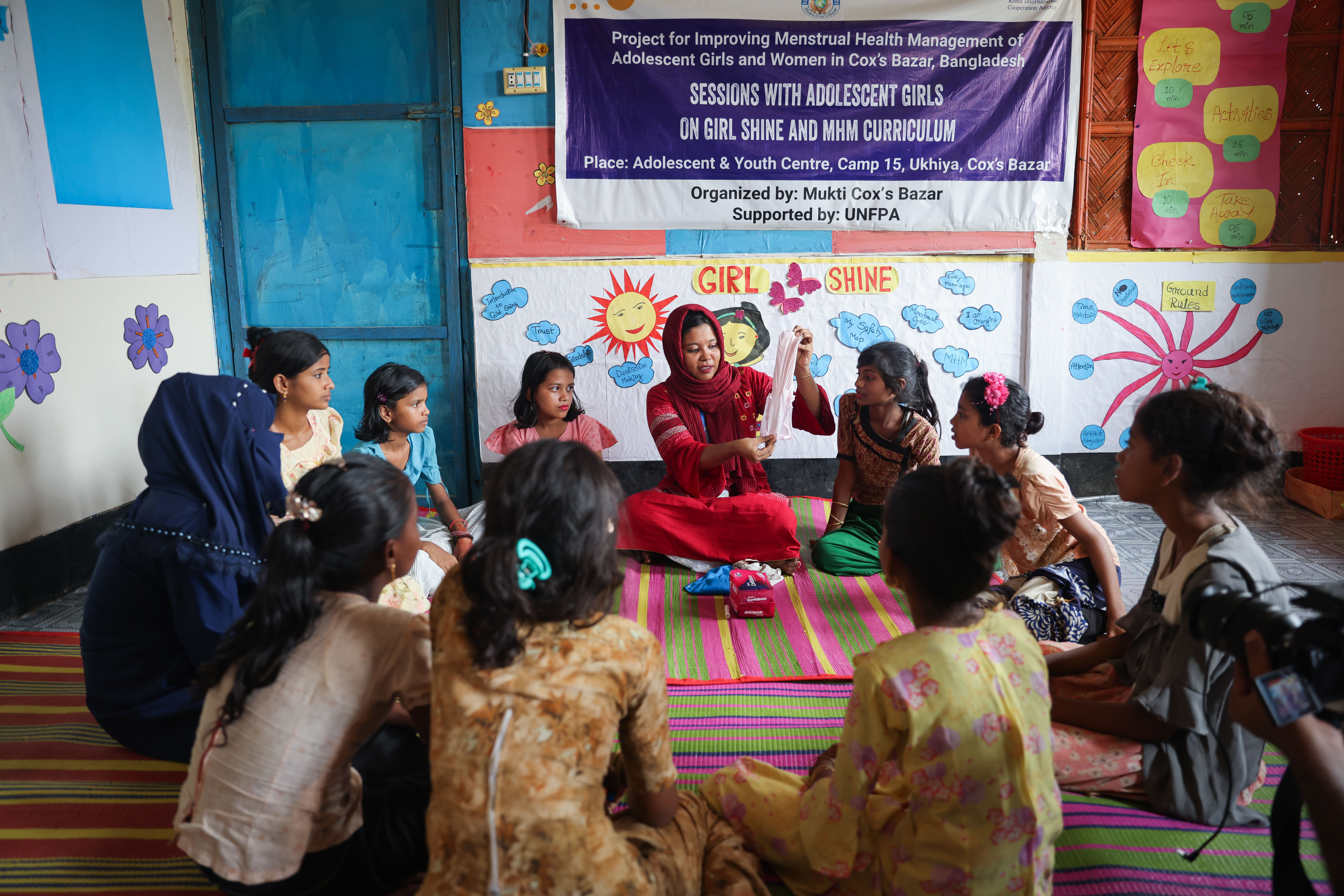
Adolescent girls are engaged in a “Girl Shine” session regarding Menstrual Health Management. Photo: UNFPA/ Fahim Ahad
Champions of Change: Shaping Positive Social Norms
Another program, "Champions of Change," is for boys and young men, including caregivers. This program aims to instill positive social norms, teaching them to have good habits and respect for girls and women, fostering a culture of equality and understanding.
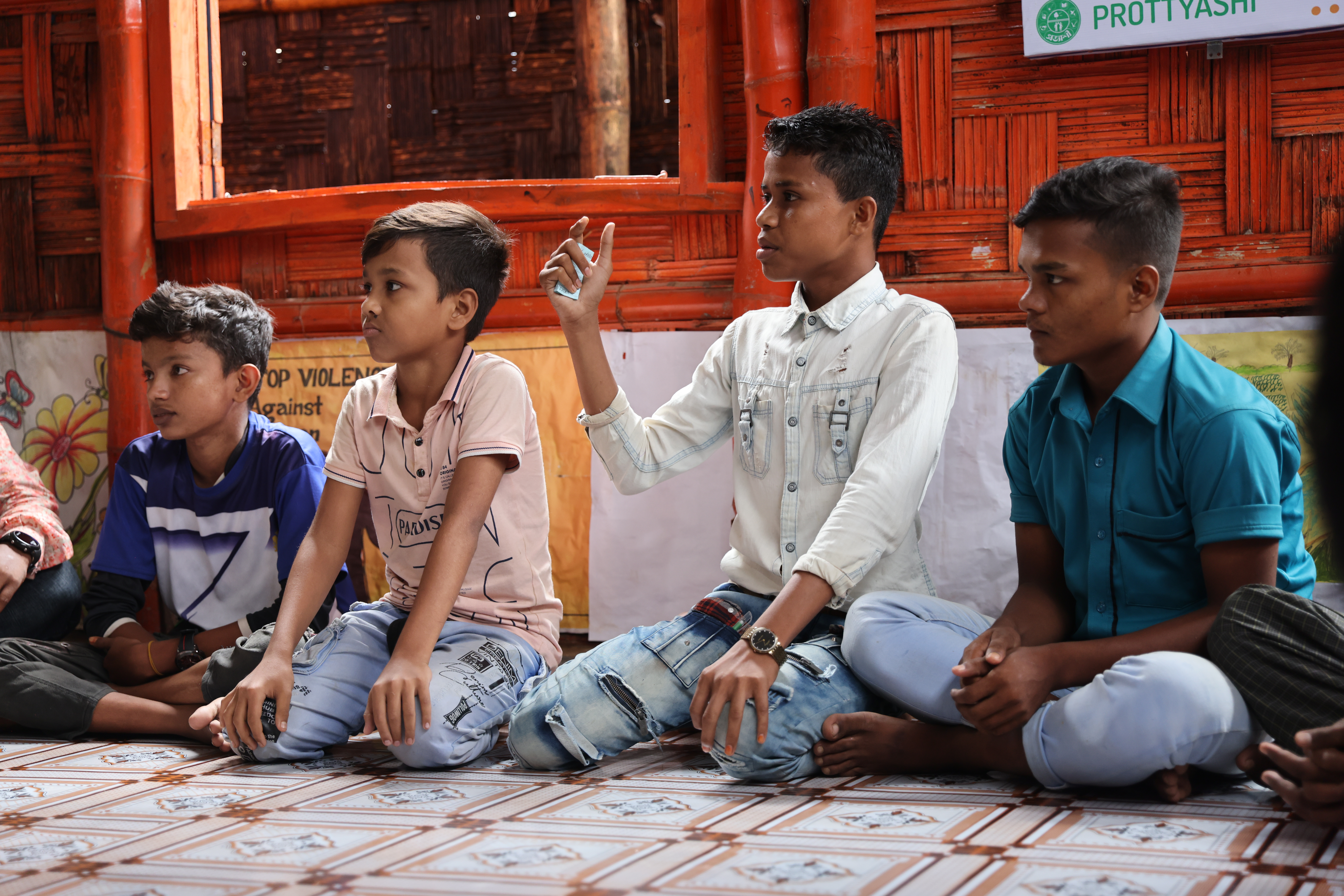
Adolescent boys are engaged in a “Champions of Change” Session. Photo: UNFPA/ Fahim Ahad
Beyond Classroom: A Whole Experience and Holistic Engagement
The success of these centers relies on a holistic approach, extending beyond life skills Community engagement, sports for development, theater for development, and mental health and psychosocial support counseling from the comprehensive program.
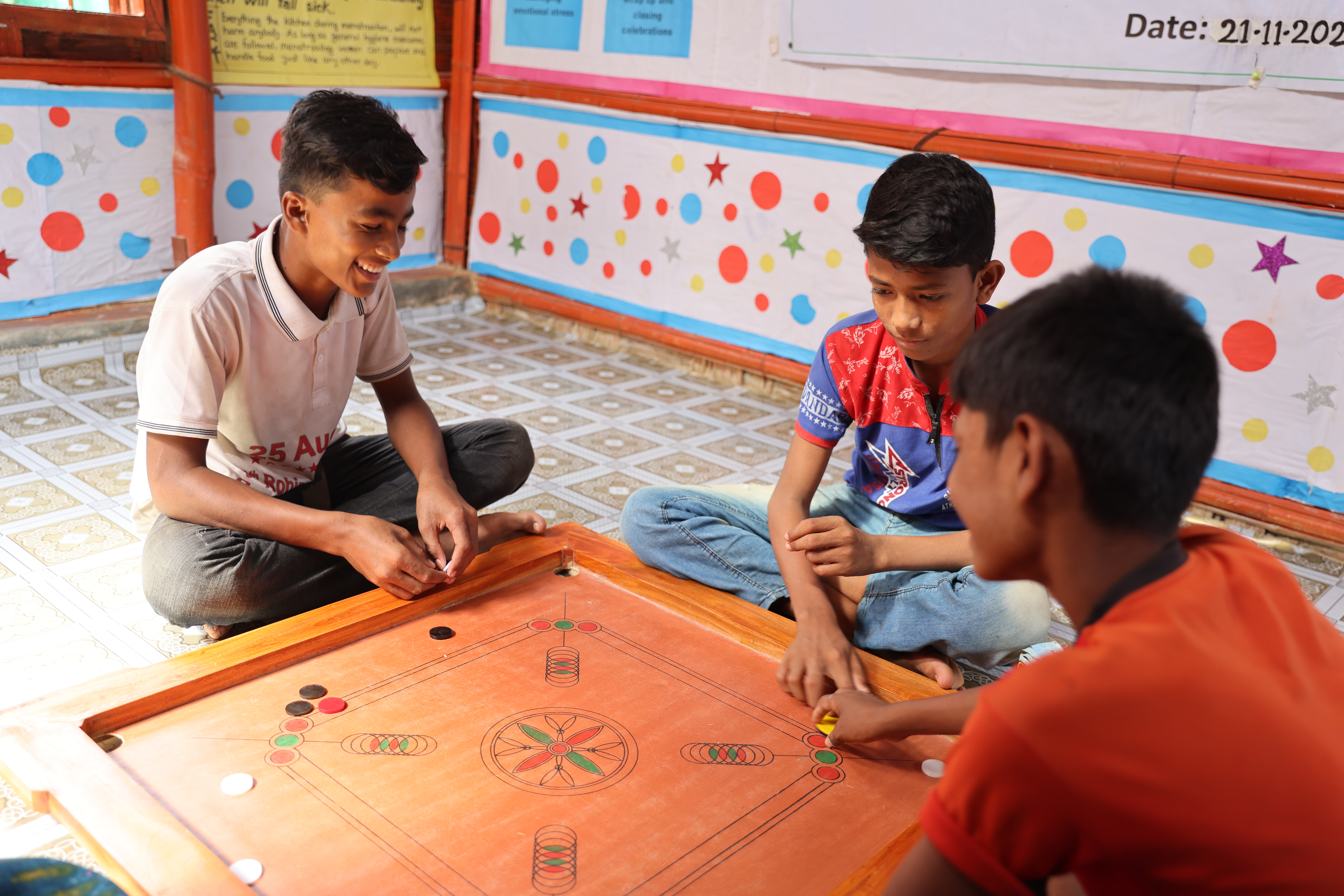
Adolescent girls and boys participate in different extracurricular activities at the youth centers. Photo: UNFPA/ Nusrat Mahmud Ananna
Youth-Driven Spaces: A Voice for Change
These spaces were initiated from the expressed needs of the Rohingya youth themselves. They desired a place that belonged to them, where they could feel heard, safe, and learn. The adolescents found safe spaces to grow—an intentional effort to involve them in decision-making. A 13-year-old adolescent girl, Jahura, from the Rohingya Camp in Cox’s Bazar, stated,
"Youth Center is the place where I find my dream and happiness."
Jahura, 13 year old adolescent girl from the Rohingya camp. Photo: UNFPA/ Fahim Ahad
Talking About Menstruation: Breaking Taboos
Within the facilities, a special emphasis is placed on breaking menstrual health taboos and they openly discuss menstruation and hygiene management. The young girls receive menstrual Health Management kits, are informed about health management, and are taught to make reusable pads to help them manage their periods better.
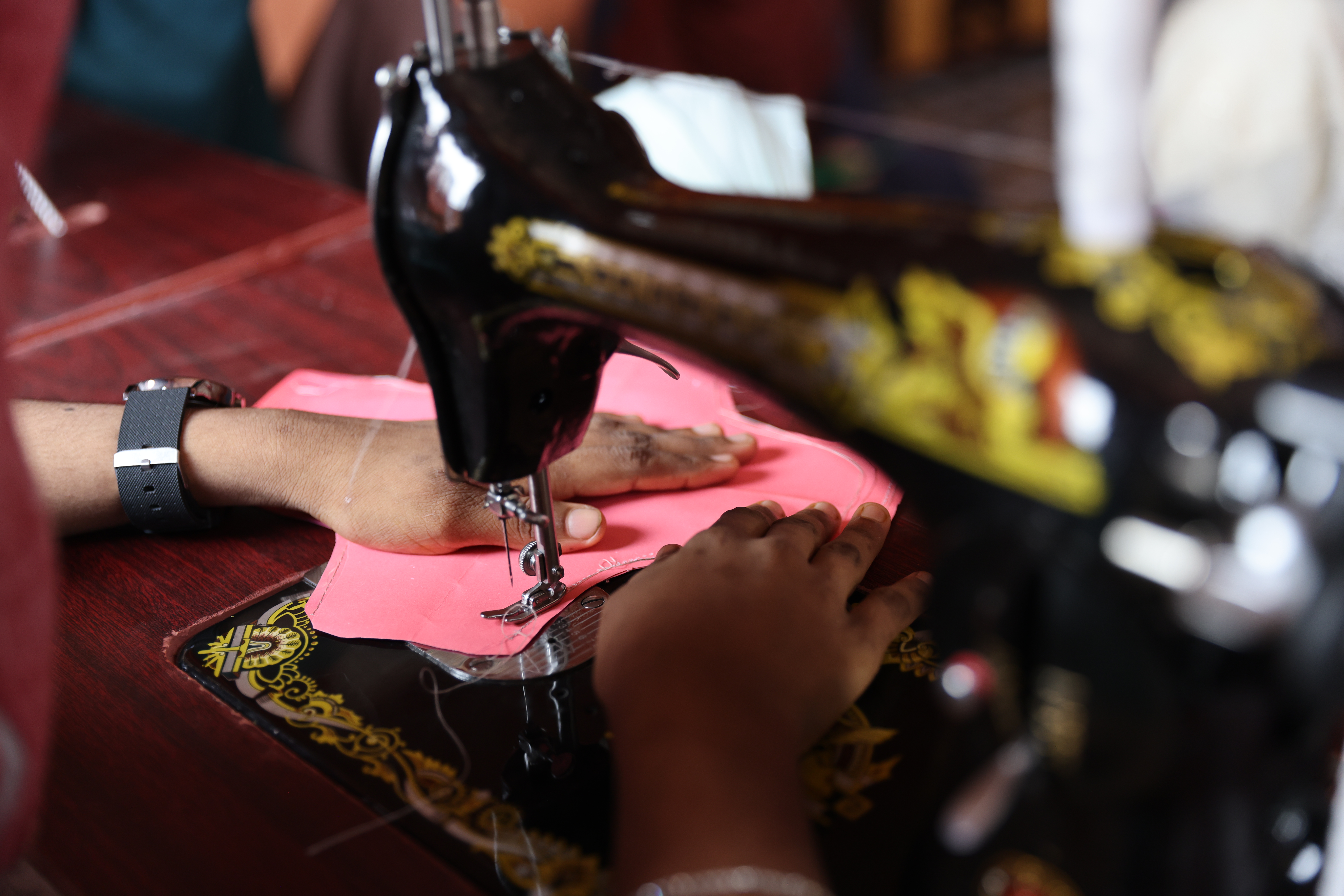
Women are taught to make reusable pads to help them manage their periods better. Photo: UNFPA/ Nusrat Mahmud Ananna
In essence, UNFPA's Youth Centers in Rohingya refugee camps go beyond being physical structures. They are catalysts for change, empowering adolescents and young people to become agents of positive transformation in their community.
Through education, support, and engagement, these centers lay the foundation for a brighter and more equitable future for all.

